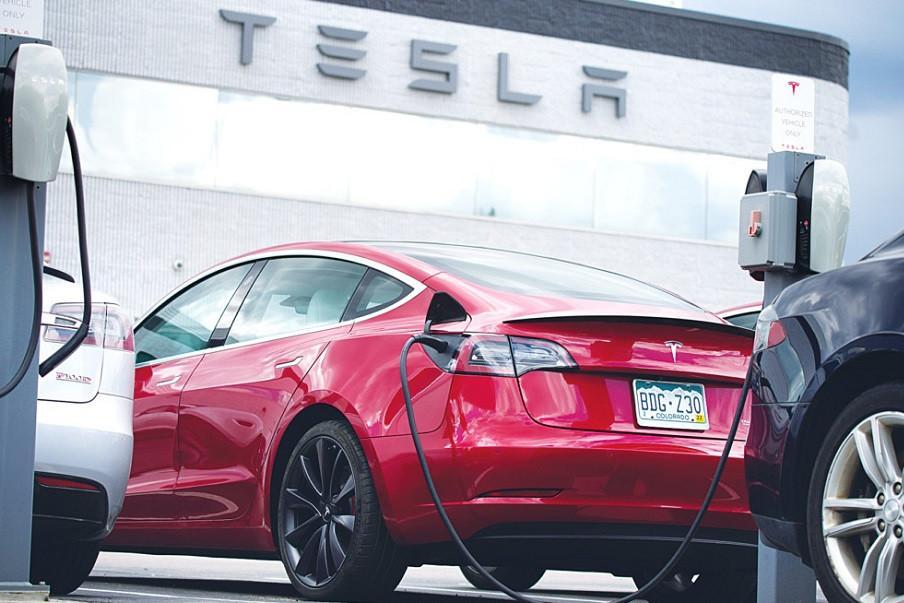Tesla recalls 54,000 vehicles to fix ’rolling stop’ feature
NEW YORK

Electric car maker Tesla will recall nearly 54,000 vehicles in the United States to end a feature that allows the cars to go through a stop sign without fully stopping.
This “rolling stop” feature in cars equipped with full self-driving software allowed the vehicles “to travel through an all-way stop intersection without first coming to a stop,” which “can increase the risk of a crash,” the National Highway Traffic Safety Administration (NHTSA) said in a letter on Jan. 31.
Starting in October 2020, Tesla included the programing in the beta version of the software, which would allow a car to move through a stop sign when traveling under 5.6 miles per-hour if no other moving vehicle, bicycle or pedestrian were present.
But after two meetings with the NHTSA, Tesla decided on Jan. 20 to deactivate this program, and notified regulators of the recall on Jan. 27. The manufacturer said it was not aware of any accidents caused by the rolling stops.
The company will recall Model 3 vehicles built between 2017 and 2022, the 2016-2022 Model S and Model X cars and Model Y vehicle produced between 2020 and 2022.
Tesla will send out a software update to the vehicles remotely and at no cost to their owners.
The latest recall follows another last November for 7,600 Tesla vehicles to fix driver airbag risks and the larger recall of half a million cars in December for trunk issues.
The company also agreed late last year to disable a feature allowing drivers to play video games while driving, after a NHTSA investigation.
Last week Tesla said in its earnings release that “Full Self-Driving” software is now being tested by owners in nearly 60,000 vehicles in the U.S. It was only about 2,000 in the third quarter. The software, which costs $12,000, will accelerate Tesla’s profitability, the company said.
Shares of Tesla, down more than 20 percent since peaking at $1,229.91 on Nov. 4, slipped about 1 percent on Feb. 1.
















